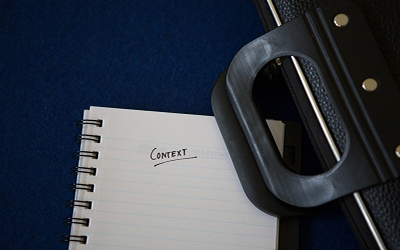I felt a great sense of power when I uttered the words, “There will be no deaths in this country for the want of organs”. This is now the vision of the Gift Your Organ Foundation and what we as a Foundation are working towards. Not only the first time, every time I say these words, I still feel the same sense of power that I had felt at the time of first saying this. And this power then urges me to action to achieve what I have just declared. The question that I was left with is how do the words I speak leave me with a sense of power? What can I do to feel this power at all times?
It is the context that I create when I speak that determines what I feel and what action I take. ‘Context’ here means, ‘that which surrounds, and gives meaning to, something else’. I could have stated ‘I hope there will be no deaths in this country for the want of organs’ and the glaring difference between the statements right on the first line and the one above here is the decisiveness of the first statement. In the first statement, there is indisputability, there is definiteness, while in the statement which uses the word ‘hope’ there is an element of uncertainty, a sense of being out of control; a dependence on external factors – external to me and hence there is a loss of power in the second statement.
Context is your answer to the ‘why’. And this applies to everything you want to apply it to. The context you create determines what you do; how you do; and, how you feel when you do. When asked two different doctors why they chose medicine as their profession, one responded by saying to make money and the other responded by saying that he wanted to save lives. Both doctors do the same thing, however, each of them has created a different context for themselves. Nothing wrong with either. One gets empowered by the thought of making money and the other by the thought of saving lives. Both these doctors have chosen to give themselves empowering contexts that which makes them wake up every morning and get to work.
Let us look at this in a slightly differently example – A friend of ours was going through some marital difficulties in her life and one friend stated, ‘I will try to do whatever I can to support her’. Another friend stated, “Who I am is a stand for our friend”. Think of a friend who needs you right now and say these two statements keeping that friend in mind and see the difference you feel when you are saying each of the statements. There is a feeling of power in the second statement; a feeling of being the cause in the matter. Both friends are genuinely concerned about our common friend. One friend will ‘try’ and leave scope for failure and the other is a ‘stand’ – there is no failure is this space.
The good news is that context is created in your language and you have the power to create any context that you want. In a subsequent blog, I will take up creating powerful contexts through language in more detail.
Sameer Dua, Founder Director, Institute for Generative Leadership, India
Schedule a Conversation
Please help us with your details.




